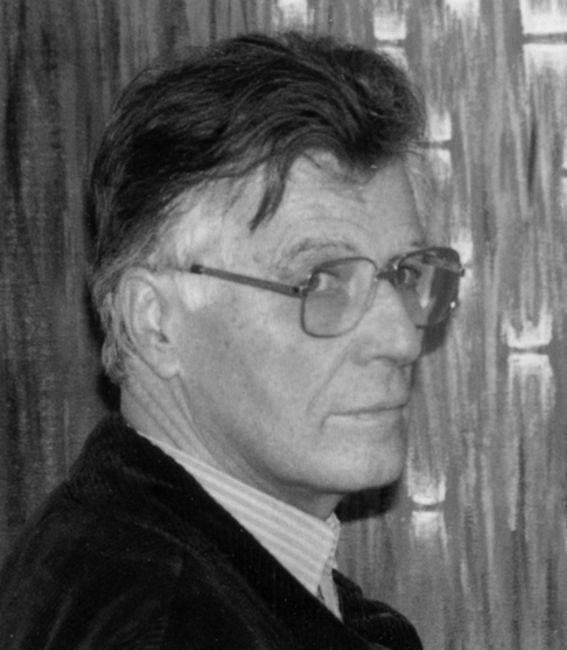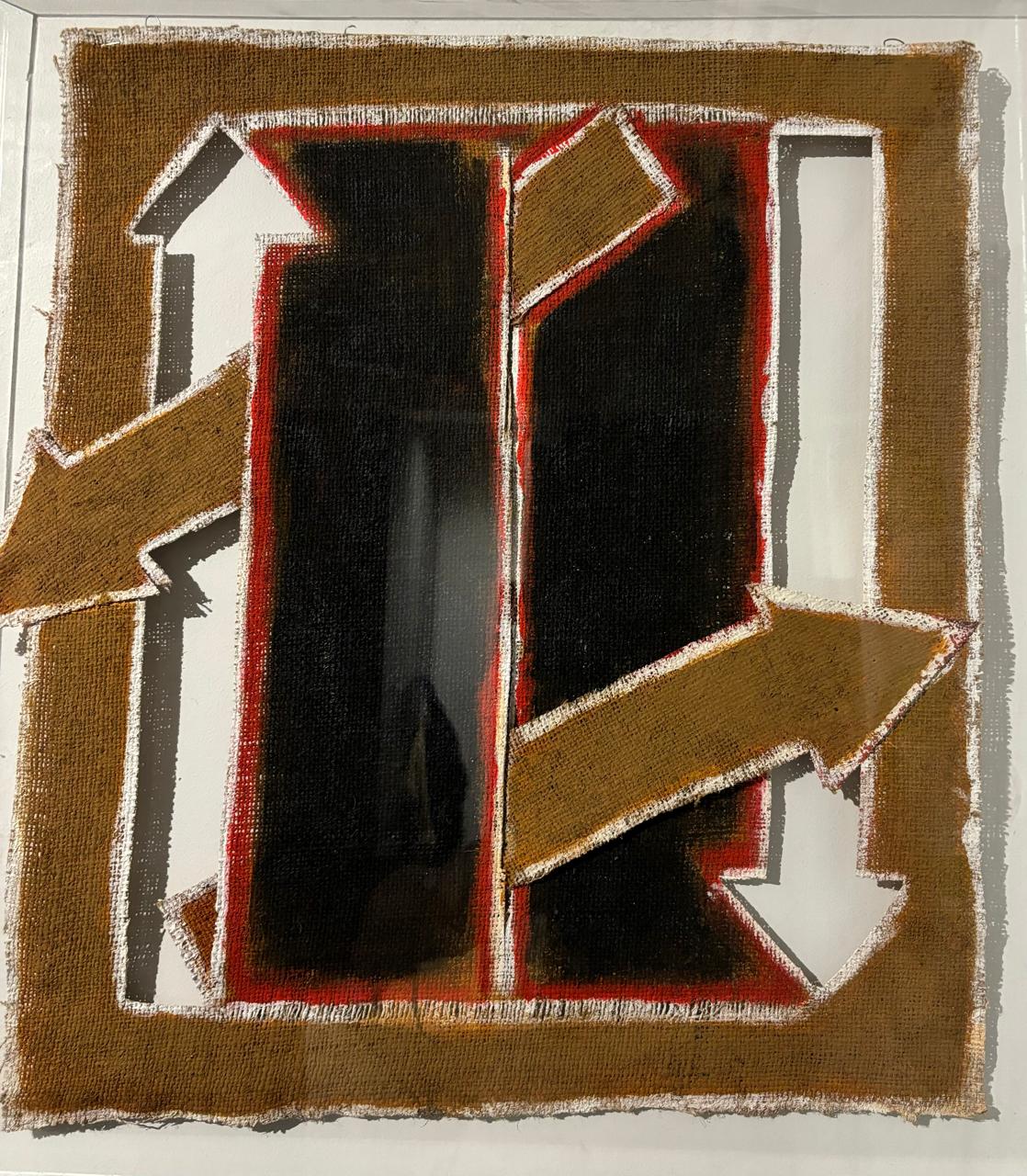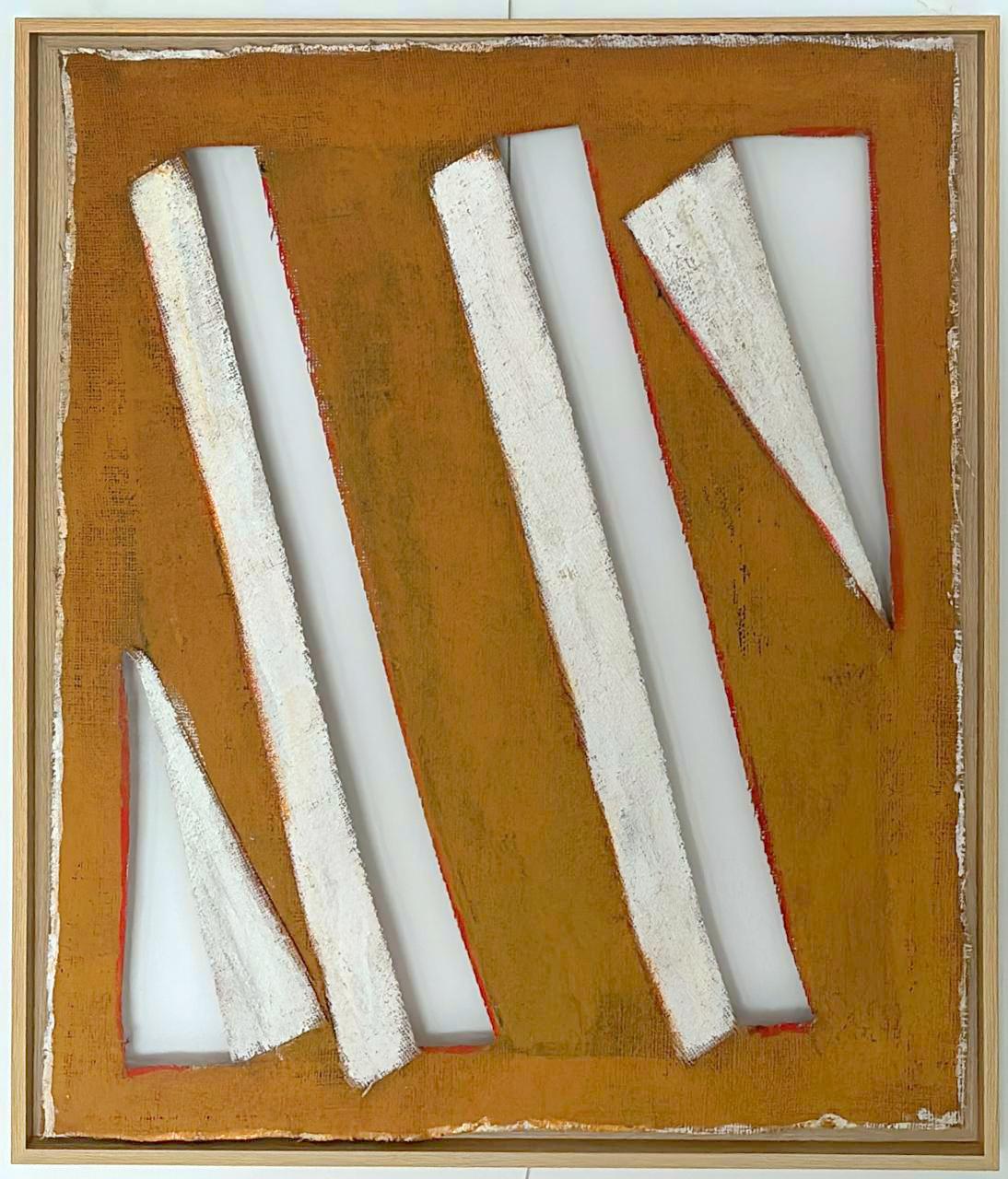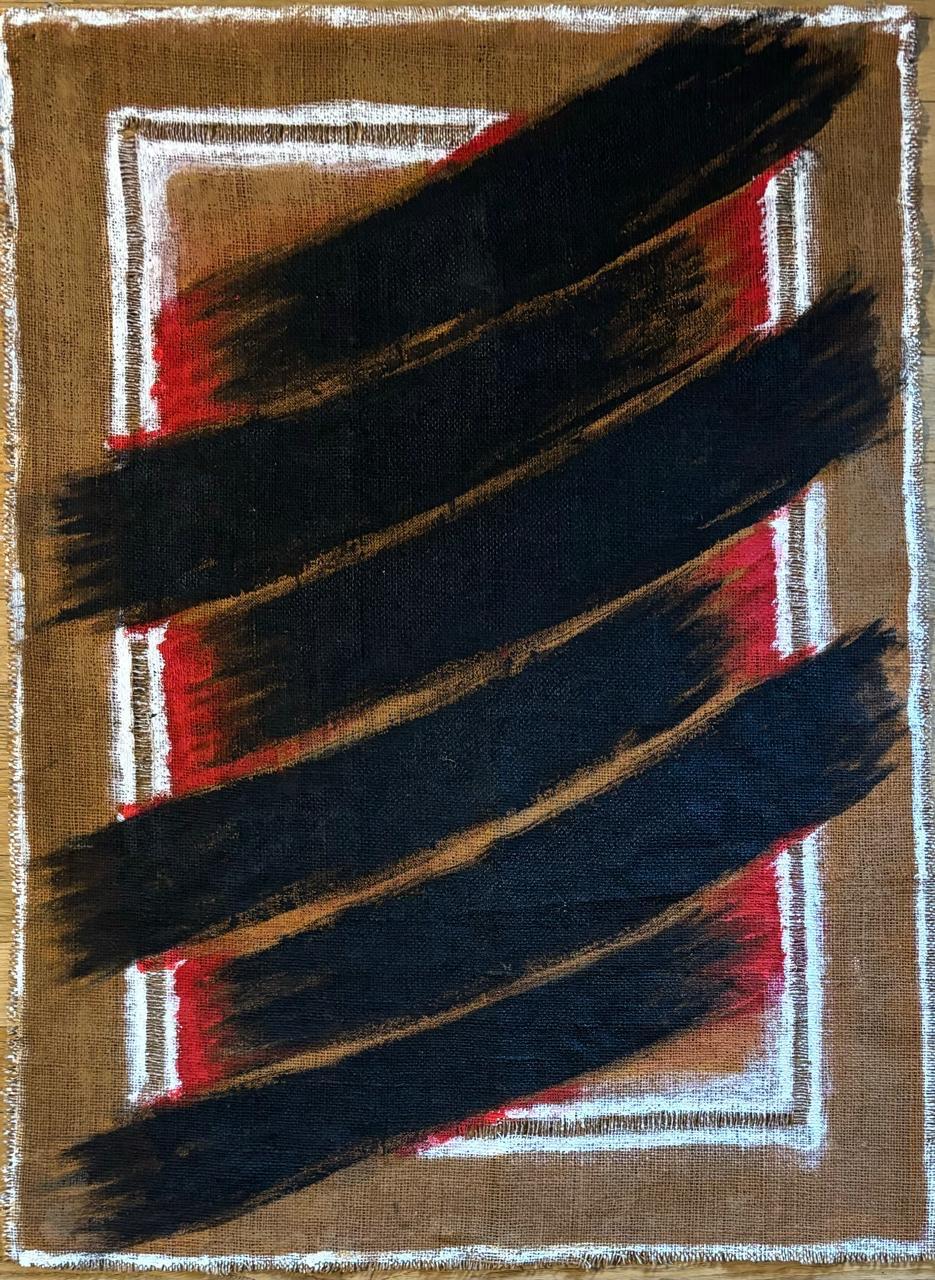Danil Panagopoulos was born in 1924 in Pyrgos Ilias. He studied painting at the Athens School of Fine Arts with Konstantinos Parthenis (1944-1947), giving up his previous studies in Medicine. In 1954 he went to Paris on a three-year scholarship, where he eventually settled permanently. At first, he was influenced by the gestural abstract painting, but soon he refrained from conventional artistic mediums and joined the nascent avant-garde movements of the time.
During the ‘60s his art moved to three dimensions, using packaging cartons as his primary material (Black Boxes). His research in this field was presented in his first solo exhibition in Paris (J gallery, 1964). With similar works, he participated in the exhibition, Three proposals for a new Greek sculpture, (along with Caniaris and Kessanlis), organized by Pierre Restany (in the context of the 1964 Venice Biennale parallel events). The disputes caused by this exhibition in Greece revealed the important role that the ‘60s generation would play in the renewal and modernization of Greek art.
Then, after being critical towards technology through his work Electric Boxes (with which he participated in the Avant-garde Griechenland exhibition in Germany in 1968), he returned to wall works. After 1972, his basic material became burlap, either torn, coloured or worn, as a research on the relationship among flat surfaces, space and light. These works, which often reveal an affinity with the French art movement Support-Surface, also express the artist’s spiritual pursuits and reflections on art and society.
He presented many solo exhibitions (some retrospectives), mainly in France and Greece. He also participated in major group exhibitions and international fairs in various countries.
He was a member of the Salon des Comparaisons Committee in Paris for decades.
He published critical essays and three books: Painting Practice and Thought (1973), Chiaroscuro A’ (1982) and Selections from the Journal 1973-1985 (1987).
In 1998, the retrospective exhibition Danil, 1950-1997 was organized at the Athens National Art Gallery.
He spent the last years of his life isolated in Pyrgos. He donated a large part of his work at the Athens National Art Gallery one year before his death (Pyrgos, 2008).
- +30 693 688 5505
- This email address is being protected from spambots. You need JavaScript enabled to view it.














